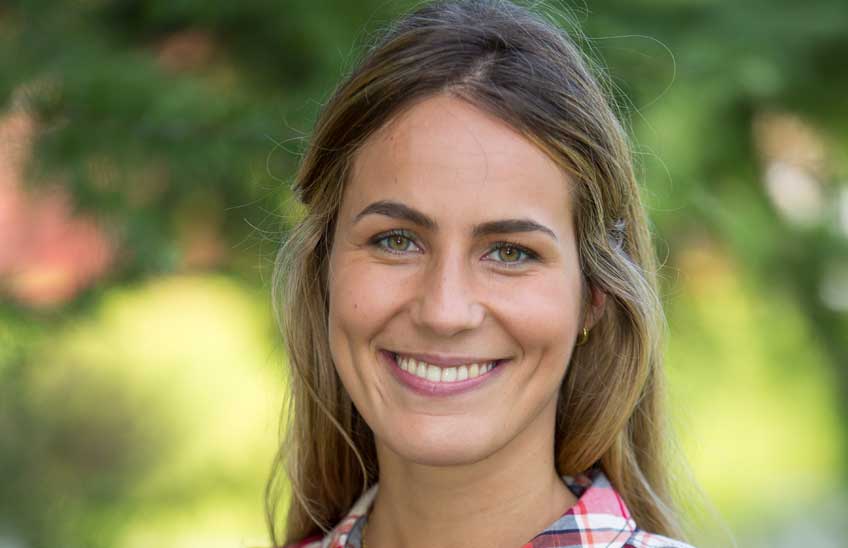Nursing professionals, in a strategic position to lead interventions in Education for Health
María Pueyo has counted on 14 experts and more than 500 professionals in her doctoral dissertation in the School of Nursing of the University.

FotoManuel Castells/<br>María Pueyo
12 | 03 | 2021
According to María Pueyo in her doctoral dissertation, developed in the School of Nursing of the University of Navarra, "nurses are in a strategic position to lead interventions in Education for Health".
This is clear from her work of research - the first phase of a broader project for the design of a training programme to train professionals in this area subject- in which she has designed and validated a new tool that allows to know the perception of nurses in hospital settings about their knowledge, skills and attitudes in relation to Education for Health.
"Today more than ever, the Education of the general population is paramount for the acquisition of healthy behaviours and lifestyles. It is the best strategy to cope with such a complex health landscape, as we have seen with the advent of the COVID-19 pandemic," says the doctor of nursing. "We have seen how the predominance of chronic diseases, the increasingly early choice of risk behaviours and the complexity of the environments around us make healthier choices more difficult," she adds. In this context, she says that nurses are in the right position to empower people to adopt healthy behaviours that improve their health and well-being and, by extension, that of the community in which they live.
Through its research, it has also been possible to identify the factors that condition the implementation internship of this role in the nursing community: "The main limiting factor is the lack of training and training. Nurses consider it very important to have a continuous training in Education for Health, to help modify behaviour in such complex environments as hospitals, with a high burden of work, lack of protocols, etc.", she explains.
14 experts in Nursing and more than 500 professionals
For the construction of tool the professor and researcher of Nursing at the University of Navarra had the participation of 14 experts in Community Nursing, Education and Health Promotion; and 524 nurses from the Hospital de Navarra, Hospital Virgen Del Camino, Hospital Reina Sofía, Clínica Ubarmin and Clínica Universidad de Navarra, who carried out the testing.
The result is the first diagnostic tool, at international and national level, that reliably measures the skill in Education for Health. "It also allows us to identify, in a detailed way, the training needs of the target group and to guide the design of a training programme adapted to their real status . It is also a very important starting point because it emphasises the need to invest in the continuous training of nurses for the competent and effective performance of Education for health".

